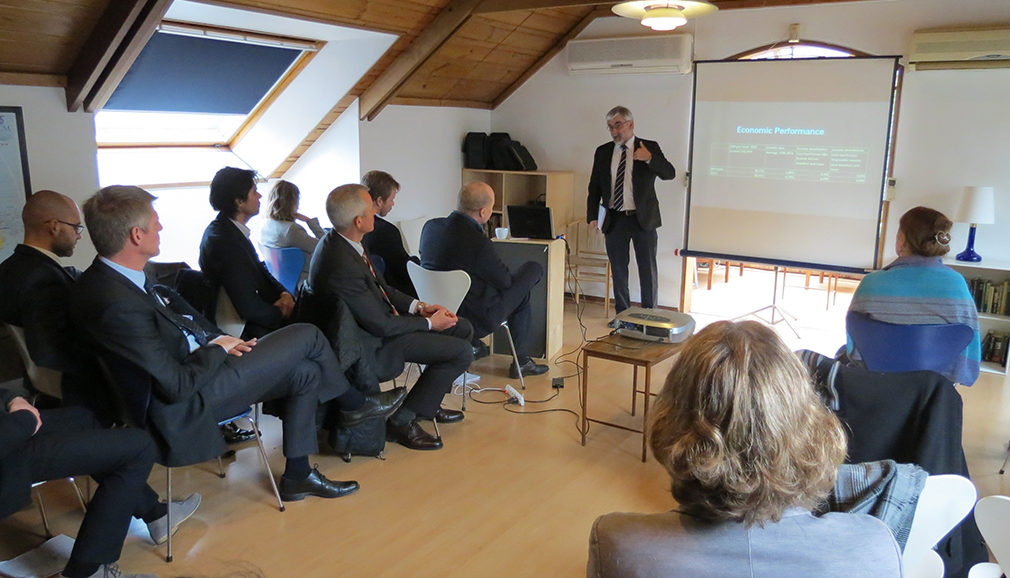
Essential information

InvestChile participates in seminar on labor relations in Danish Embassy

The seminar was also attended by representatives of large Danish companies with operations in Chile such as Maersk Container Industry (MCI), Novo Nordisk, ISS and BioMar, who shared their experience in the local market in the light of the Danish model.
Denmark has a tradition of over 100 years of effective labor relations. Key features of the internationally recognized “Danish Model of Labor Relations” include trust as central to collective bargaining, limited regulation, great flexibility and a high level of union membership. The model’s success is reflected in low unemployment (6.2% at end-2016), high wages, a low level of inequality and almost 20 years without strikes.
In order to share the experience of leading players in the country’s labor market and details of its praised model, the Danish Embassy in Chile held a seminar this morning at which Carlos Álvarez V., director of InvestChile, was one of the speakers.
“We view the Danish model of labor relations as a competitive advantage in attracting foreign direct investment,” said Denmark’s ambassador to Chile, Jesper Fersløv Andersen. He indicated that part of his country’s work in foreign relations is precisely to contribute in this field through its experience. For this reason, it will soon be signing a cooperation agreement with Chile.
Other speakers at the seminar included the vice-president of the Danish Confederation of Trade Unions (LO), Arne Grevsen, and the vice-president of the Confederation of Danish Employers (DA), Henrik Bach Mortensen. They underlined the importance of building a basis of trust in a negotiation, bearing in mind that, if an agreement is reached, both parties benefit and, moreover, view themselves as “good colleagues” rather than adversaries.
The director of InvestChile spoke about Chile’s labor system and the principal business opportunities the country offers for overseas companies.
“Chile welcomes foreign investment and has the institutional framework to receive it. We are also the country with the largest number of free trade agreements in the world and have the maturity and logistics for exporting,” said Carlos Álvarez, noting that investment promotion is one of the pillars of the government’s Productivity, Innovation and Growth Agenda.
Representatives of large Danish companies with operations in Chile such as Maersk Container Industry (MCI), Novo Nordisk, ISS and BioMar also spoke at the seminar, sharing their experience of the Chilean market in the light of the Danish model.
Although the speakers agreed that the Danish model of labor relations, with its emphasis on trust and the good will of the parties, cannot easily be exported to other countries, even within the European Union, they also agreed that it is possible to take elements of the model and adapt it to other cultures. In this context and particularly in the case of Chile, Ambassador Andersen drew attention to certain structural similarities between Denmark and Chile such as their democratic principles, macroeconomic framework and openness to trade as a basis from which to advance towards best practices in resolving labor conflicts.







